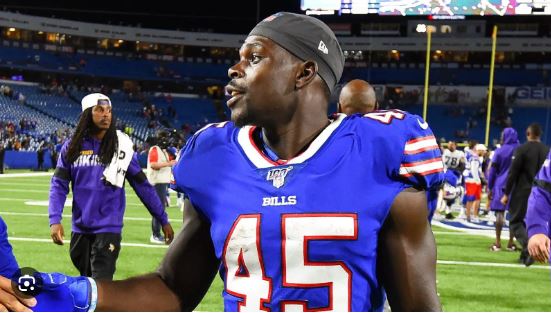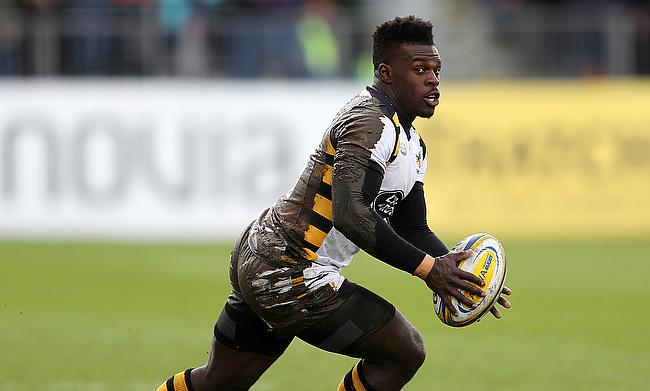
Christian Wade has identified a Guinness Six Nations player whom he believes is best suited for a transition to American football. Having ventured into the NFL himself after departing from rugby, Wade’s insight is particularly valuable. Reflecting on Louis Rees-Zammit’s recent decision to pursue a career in the NFL, Wade shared his thoughts on the matter. However, he pointed out another player whom he considers ideal for the switch from rugby to American football.

In an interview with BitcoinCasinos, Wade expressed his admiration for Sebastian Negri, whom he watched on Full Contact. Negri’s stature, strength, and determination led Wade to believe that he could thrive in the NFL, particularly as a tight end. Wade envisioned Negri excelling in a hybrid role akin to a receiver or running back, provided he possessed the necessary catching skills.
Negri’s recent injury during the England match has sidelined him from the upcoming Guinness Six Nations fixture against Ireland. Wade, drawing from his NFL experience, emphasized the significant disparity in the physicality of tackles between rugby and American football. He highlighted the risks associated with NFL tackles, particularly due to the protective gear worn by players and the potential for high-impact collisions. Wade offered advice to Rees-Zammit, stressing the importance of learning to protect oneself, especially during special team plays where players are vulnerable to hard hits from opponents with specific assignments to stop them.
Comparing the two sports, Wade noted that while rugby tackles can still cause significant pain, the absence of protective gear in rugby requires a different kind of technique. He shared his own experiences of dealing with various types of tackles and injuries in both sports, emphasizing the need for self-protection in the NFL due to the absence of regulations regarding tackling above the shoulders and the potential for dangerous hits targeting the knees.
Furthermore, Wade recommended that Rees-Zammit focus on playing special teams initially in the NFL, given his speed and agility. He suggested positions such as running back and wide receiver, commonly referred to as “skill positions,” as viable options for Rees-Zammit, emphasizing the challenges associated with playing defense in American football without extensive prior experience or knowledge of the game.
Wade continued by emphasizing the importance of understanding one’s role, routes, and reading the defense, particularly in positions like running back and wide receiver, where Rees-Zammit could excel. He suggested that Rees-Zammit’s best opportunity to gain playing time would likely be through proving himself on special teams, where players often make significant contributions despite not being in the spotlight like receivers or running backs. Wade likened this dynamic to soccer, where everyone wants to play outfield positions rather than in goal.
He highlighted the versatility of special team roles and suggested that Rees-Zammit could utilize his speed effectively, perhaps as a kick-off returner. Wade also noted that the skills Rees-Zammit would develop for running back positions would overlap with those needed for special teams, facilitating his transition.
Shifting gears back to rugby, Wade expressed excitement about Owen Farrell joining him as a Racing teammate in France next season. Wade and Farrell have a history dating back to their time in the U16s, and Wade spoke positively about catching up with Farrell recently, highlighting Farrell’s longstanding contribution to the England team.
Leave a Reply